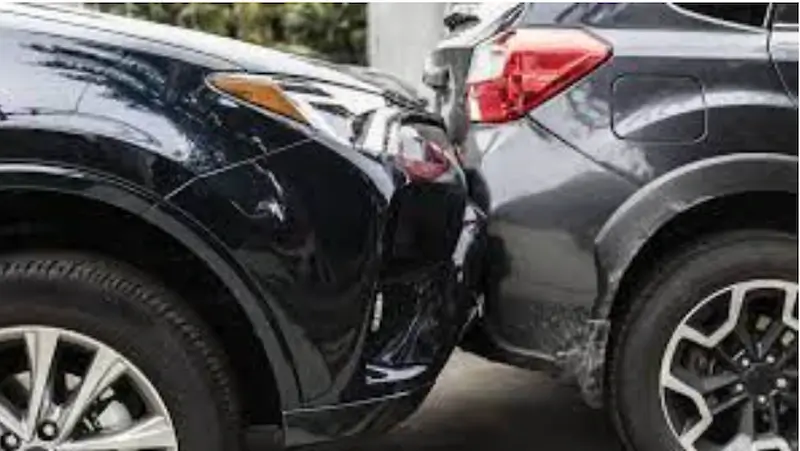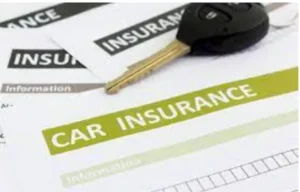In the intricate landscape of auto insurance, navigating the specifics of Massachusetts car insurance demands a comprehensive understanding of the state’s distinctive regulations and coverage necessities. This guide aims to shed light on the insurance intricacies in the Bay State, encompassing essential keywords such as Massachusetts, car insurance, auto, and more.

Table of Contents
Understanding Massachusetts Car Insurance Requirements
The Foundation: Massachusetts Car Insurance Laws
At the heart of the matter lie the laws governing car insurance in Massachusetts. Familiarity with these laws is crucial for every driver. Massachusetts follows a no-fault system, where individuals seek compensation from their insurers regardless of who is at fault in an accident. This framework underscores the importance of having adequate coverage.
Minimum Requirements: Unveiling the Basics
To legally operate a vehicle in Massachusetts, drivers must comply with the state’s minimum car insurance requirements. These requirements include specific types of coverage and mandated limits. Understanding the nuances of this mandate ensures compliance with the law.
Massachusetts mandates a minimum coverage structure that spans various elements. The minimal requirements cover bodily injury liability, property damage liability, personal injury protection (PIP), and uninsured motorist coverage. This multifaceted approach is designed to safeguard all parties involved in an accident.
The Core Components:
- Bodily Injury Liability: At least $20,000 per person and $40,000 per accident.
- Property Damage Liability: A minimum of $5,000 per accident.
- Personal Injury Protection (PIP): At least $8,000 per person, covering medical expenses and lost wages.
- Uninsured Motorist Coverage: A minimum of $20,000 per person and $40,000 per accident.
These figures exemplify the minimum threshold set by Massachusetts law. However, individuals are encouraged to consider higher coverage limits to provide enhanced financial protection in the event of a severe accident.
Penalties for Non-Compliance
Non-compliance with Massachusetts car insurance laws can lead to severe consequences. Law enforcement officers and the Registry of Motor Vehicles (RMV) are authorized to penalize drivers who fail to meet the state’s insurance requirements. Penalties may include fines, license suspension, and the inability to register a vehicle.
Beyond Minimums: Additional Coverage Considerations
While meeting the minimum requirements is essential, many drivers opt for additional coverage to fortify their financial security in various scenarios. Understanding the options beyond the basics is pivotal for crafting a comprehensive insurance policy tailored to individual needs.
Comprehensive and Collision Coverage
Comprehensive and collision coverage safeguards drivers against damage to their vehicles, irrespective of fault. Comprehensive coverage extends to non-collision events, such as theft, vandalism, or natural disasters. Meanwhile, collision coverage encompasses damages resulting from collisions with other vehicles or objects.
Uninsured/Underinsured Motorist Coverage
In a scenario where the at-fault party lacks insurance or carries insufficient coverage, uninsured/underinsured motorist coverage becomes invaluable. This coverage ensures that the insured driver is not left bearing the financial burden of an accident caused by an inadequately insured or uninsured motorist.
Commercial Auto Insurance
For those utilizing vehicles for business purposes, exploring commercial auto insurance is imperative. This coverage caters to the unique risks associated with commercial vehicle usage, offering protection beyond personal auto policies.
Rates, Quotes, and Choosing Wisely
Understanding Massachusetts car insurance extends to navigating the realm of insurance rates and quotes. Numerous factors influence these rates, including driving history, age, vehicle type, and coverage preferences. Comparing quotes from different insurers is a savvy approach to securing the most favorable terms.
Factors Affecting Insurance Rates
- Driving Record: A clean driving record typically results in lower rates.
- Age and Gender: Younger drivers and males may face higher premiums.
- Vehicle Type: The make and model of the vehicle impact insurance costs.
- Coverage Choices: Opting for comprehensive coverage or higher limits may increase premiums.
The Art of Comparison Shopping
Diligent consumers engage in comparison shopping to pinpoint the most competitive rates. Obtaining quotes from various insurers allows individuals to make informed decisions, balancing coverage and cost-effectiveness.
Driving Without Insurance: A Costly Gamble

The consequences of driving without insurance in Massachusetts far outweigh the short-term financial gains of evading premiums. In addition to legal penalties, uninsured drivers risk significant financial strain in the event of an accident. It is a gamble that rarely pays off.
The Legal Consequences
Massachusetts imposes strict penalties for driving without insurance. Offenders may face fines, license suspension, and the requirement to file an SR-22 form, indicating financial responsibility. These penalties escalate for repeat offenders.
Financial Vulnerability
Beyond legal repercussions, driving without insurance leaves individuals financially vulnerable. In the absence of insurance, drivers are personally responsible for covering medical expenses, property damage, and legal fees resulting from an accident.
Strategies for Affordable Coverage
While the necessity of insurance is non-negotiable, there are strategies to secure affordable car insurance in Massachusetts. Understanding these tactics empowers individuals to optimize their coverage without breaking the bank.
Discounts and Savings Opportunities
Insurers often provide various discounts that can significantly reduce premiums. These may include safe driver discounts, multi-policy discounts, and discounts for completing defensive driving courses. Exploring these opportunities can result in substantial savings.
Monitoring and Adjusting Coverage
Regularly assessing and adjusting coverage based on changing circumstances is a proactive approach to managing insurance costs. As circumstances evolve, coverage needs may shift, presenting opportunities to optimize the policy.
The Road Ahead: Staying Informed and Covered
In the ever-evolving landscape of car insurance, staying informed is paramount. Regularly reviewing policies, understanding updates to Massachusetts car insurance laws, and exploring coverage options ensure that drivers remain well-equipped to navigate the road ahead.
Embracing Education
A well-informed driver is an empowered driver. Embracing ongoing education about car insurance intricacies positions individuals to make informed decisions that align with their unique needs and circumstances.
Leveraging Professional Guidance
Navigating the nuances of Massachusetts car insurance can be complex. Seeking guidance from insurance professionals helps individuals understand the intricacies of coverage options, discounts, and legal requirements. This partnership ensures that drivers make decisions aligned with both their financial goals and legal obligations.
In conclusion, the journey of understanding Massachusetts car insurance requirements is a nuanced expedition. From deciphering minimum coverage laws to exploring additional protection, drivers are empowered to make choices that resonate with their unique circumstances. By embracing education, staying informed, and leveraging professional advice, individuals pave the way for a well-protected journey on the roads of the Bay State.
FAQs: Understanding Massachusetts Car Insurance
What car insurance is required in Massachusetts?
Massachusetts mandates that drivers carry a minimum level of car insurance coverage to operate a vehicle legally within the state. The required range includes:
- Bodily Injury Liability: This coverage compensates for injuries or death for which you, as the policyholder, are deemed responsible.
- Property Damage Liability: This coverage takes care of damages to another person’s property for which you are at fault.
Compliance with these minimum requirements is essential to avoid legal repercussions.
What do you need for proof of insurance in Massachusetts?
To provide proof of insurance in Massachusetts, you typically need to carry a copy of your insurance policy or the insurance ID card issued by your insurer. Law enforcement officers generally accept digital proof displayed on a smartphone during traffic stops. Ensuring you have this documentation readily available while driving is crucial.
Is it illegal to drive in MA without insurance?
Yes, driving without insurance in Massachusetts is illegal. The state has stringent laws to ensure that all drivers have the financial means to cover potential damages resulting from an accident. Penalties for driving without insurance can include fines, license suspension, and other legal consequences.
Do out-of-state drivers need insurance in Massachusetts?
Yes, out-of-state drivers are required to have insurance that meets or exceeds the minimum coverage requirements in Massachusetts. Whether you are a resident or a visitor, having proper insurance is essential for legal and financial protection while driving in the state.
How much is car insurance monthly in Massachusetts?
The monthly cost of car insurance in Massachusetts varies widely based on individual factors. Elements such as driving history, coverage type, vehicle type, and location can influence insurance premiums. To determine an accurate estimate, it is advisable to obtain personalized quotes from insurance providers based on your specific circumstances.
Can I register a car in Massachusetts without insurance?
No, you cannot register a car in Massachusetts without proof of insurance. The state requires prospective vehicle owners to provide evidence of insurance coverage as a prerequisite for registration. Ensuring you have insurance in place before attempting to register your vehicle is essential.
Why is car insurance in Massachusetts so expensive?
Several factors contribute to the relatively higher cost of car insurance in Massachusetts. The state’s high population density, urban traffic conditions, frequency of accidents, and overall cost of living all play a role. Additionally, the unique no-fault insurance system in Massachusetts can impact insurance premiums.
What is full coverage in Massachusetts?
While “full coverage” is a term commonly used, it is not officially recognized by insurance regulators. Typically, it refers to a policy that includes more than just mandatory liability coverage. Full coverage may consist of:
- Liability Coverage: For bodily injury and property damage.
- Collision Coverage: Protects your vehicle in case of a collision.
- Comprehensive Coverage: Covers non-collision incidents like theft or natural disasters.
What is the Clean in 3 Rule in Massachusetts?
The “Clean in 3 Rule” in Massachusetts refers to the provision that allows certain traffic violations to be removed from a driver’s record after three years. This can positively impact insurance rates, as infractions may no longer be considered in determining premiums.
Do all household members need to be on car insurance in Massachusetts?
In many cases, insurance companies in Massachusetts require all household members with a driver’s license to be listed on the car insurance policy. This practice ensures that all potential drivers in the household are covered in the event of an accident. It’s essential to check the specifics of your policy to confirm these details.
Can someone drive my car if they are not on my insurance in Massachusetts?
Generally, insurance in Massachusetts follows the car rather than the driver. If someone borrows your car with your permission, they are typically covered by your insurance. However, coverage specifics can vary, so it’s advisable to consult with your insurance provider to avoid any uncertainties or potential gaps in coverage.
These comprehensive answers provide a deeper understanding of various aspects of car insurance in Massachusetts, offering valuable insights for both residents and visitors alike. Always consult with insurance professionals for personalized advice based on your unique circumstances.




